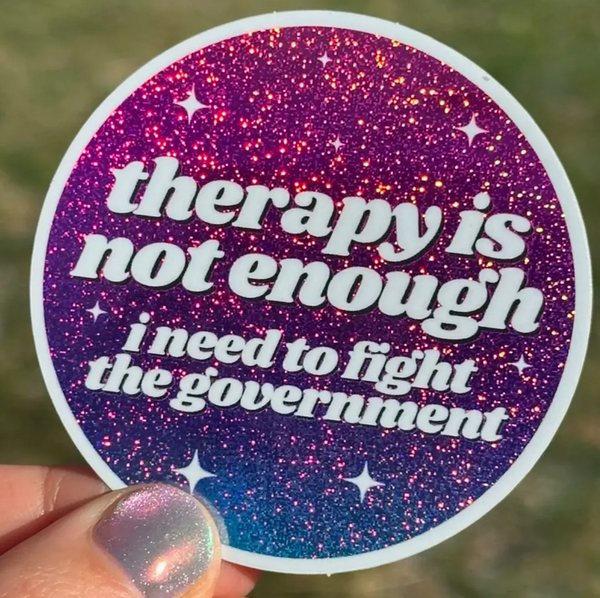rights/writes
I'm writing a piece for a special issue I'm editing with some academic friends, in which I write a queer feminist rereading of the UK Supreme Court decision in For Women Scotland v The Scottish Ministers. As much as that sounds like an impossible thing to do, given the givens, I'm giving it a shot. I thought I'd write a little behind the scenes of an academic article for you because I think when the real thing comes out - if I do it at all well - it'll garner some attention.
I'm writing a judgment, and a commentary to it. The first thing I need to decide is whether to write as a dissenting justice on the real Supreme Court, or as the lead for a majority of a hypothetical Court. This will decide how I frame the entire thing, because if I'm writing a dissent, then the current lay of the land is still before me. If I'm writing a hypothetical majority, then I open up a whole other paradigm where the highest Court in the UK decides to stand up for trans rights. As appealing as that is, I fear it may end up just being wish fulfilment or fairy stories. Rewritten judgments give you the opportunity to do that, I suppose, but I don't know that I'm currently in the mindset for an 'and everybody cheered' feeling to an academic article.
So I've started writing from the viewpoint of a dissenting voice to the majority, which is proving quite cathartic. It feels very much like what it feels like in general to do trans rights work in the UK at the minute - you know you're not winning and you're probably years from winning, but maybe you put a small crack in the hegemonic walls. Maybe you give voice to something that needs voicing. As a legal writer, it means I get to start work on all the faulty logic I see in how the Supreme Court handed down the original judgment, and put into practice my human rights knowledge to rectify that.
Queer judgments and feminists judgments projects have become popular over the last decade or so. I've been involved minorly with two (Northern/Ireland Feminist Judgments as a research assistant, and Queer Judgments in its initial phase) but this is my first time writing for one. They let writers, often from the affected minoritised background, retell major cases in the field from a different point of view, using feminist and/or queer lenses to look at the law. For example, this could involve reading a criminal judgment to a different verdict by employing a less heteronormative way of interpreting a statute, or using feminist theory as your backdrop to a human rights-based judgment. It's a way of letting minoritised voices in the legal academy and profession have a way to shout back at injustices that we've had to live through or learn about while our more societally privileged peers get to interact with the law from a more neutral basis. It also gives readers, and students, the chance to see how things might look different if the judiciary was made up of a more diverse range of voices.
My judgment, therefore, needs to do several things at once. It needs to respond to the real FWS judgment. It needs to pick up on the omissions in the real judgment. And it needs to answer the question 'if this was being decided in a manner that allowed for a queer/feminist/trans lens to be used on the law, what would it look like?'
Trans studies is a nebulous academic field where we flit in and out of queer, feminist, D/disabled, M/mad, postcolonial, Black, and many more fields of study/studies, because like transness itself, the study of transness makes it hard to find a particular niche to land oneself in. You are always at a border-crossing. Where trans studies meets law, it sometimes has to stop dead in its tracks, because the law is an instrument of regulation and of categorisation that cannot deal with quicksilver transness. There is always some compromise with transness and law. The potential for radically transformative work is essentially curtailed by law's strictures, and instead of dreaming up a new future, one is stuck building with the tools of the past.
It's not possible to liberate us through law, but it is possible to make things better, piece by piece, if you're conscientious and strong in the doing. What I found so frustrating about FWS is the complete abdication of the Court's duty to stand up for the rights of the minority - the human rights analysis, which is required by law under the Human Rights Act 1998, not just something that's 'nice to have,' is completely lacking. Human rights are themselves not a panacea - don't get me started - however, they're a useful and strategic way to uphold social rights for demographics who would not get them through majority rule, and that is why we have human rights law in the first place.
I'll finish by saying this - I find the lens through which the Supreme Court views the law in FWS to be structurally transphobic. Their analysis does not make sense unless you start from a viewpoint wherein trans women are not real women. I categorically reject that viewpoint. I reject any paradigm in which trans women are not women, and in which a GRC is not a binding legal document for all purposes. I reject the premise that you are not 'officially' trans without a GRC too, as it happens, but that was outside the bounds of this case.
I am keeping writing and I'll probably share some excerpts as I go. This is an exciting piece of writing to be doing, and an excellent distraction from my writer's-blocked book project (sorry publishers, I'm just overcommitted this summer...)
